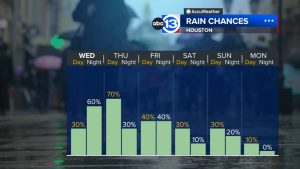
In a recent legal battle concerning Harris County’s pioneering guaranteed income initiative, a state district judge ruled against Texas Attorney General Ken Paxton’s lawsuit on April 18. The ruling effectively permits the continuation of the Uplift Harris program, enabling over 1,900 eligible households living below 200% of the poverty line to receive monthly funds of $500 by the end of April.
The $20.5 million program, funded through a combination of local and state resources from the American Rescue Plan Act, forms a crucial component of Harris County’s comprehensive strategy to combat economic inequality within the region.
Representing the county in the case, Harris County Attorney Christian Menefee emphasized the program’s significance in assisting struggling families. Menefee stated, “Helping families in need is a proper use of government funds. Giving people the tools they need to lift themselves out of poverty is both morally sound and good public policy.”
However, the legal dispute isn’t resolved yet. Anticipating an appeal from the state, county officials are prepared for the case to potentially escalate to the Texas Supreme Court.
The crux of Paxton’s lawsuit, filed on April 9, centered on the allegation that the program’s distribution of public funds violates the Texas Constitution. Paxton argued that taxpayer money should be spent lawfully and in the public interest, without mere redistribution lacking accountability or a clear benefit.
In response, Harris County contended that Uplift Harris serves a “public purpose,” a crucial criterion established by Texas courts. Menefee reiterated that the program’s objective is to uplift families out of poverty, thus positively impacting the local economy.
Another point of contention was the selection criteria for Uplift Harris, with Paxton asserting that the process was not “rational” under the Texas Constitution’s equal protection clause due to the use of a lottery system. However, the county defended its approach, emphasizing that applicants had to meet specific income and geographic requirements, and the randomized selection process did not contravene the state constitution.
The decision was hailed as a victory by Precinct 1 Commissioner Rodney Ellis, who spearheaded the program. Ellis emphasized the significance of initiatives aimed at improving the lives of constituents, underscoring the broader impact of such programs as potential models for other counties grappling with similar challenges.
Zooming out from Harris County, the initiative aligns with broader trends in Texas, with Austin City Council recently approving a contract with nonprofit UpTogether to continue its own guaranteed income program. These efforts reflect a growing recognition of the role of guaranteed income programs in addressing housing challenges and economic disparities across the state.
Houston residents, according to a 2023 poll from the Kinder Institute for Urban Research at Rice University, express support for a range of policies aimed at tackling housing issues, including the provision of a universal basic income for low-income working adults. The growing housing crisis in Houston, highlighted by a doubling of median house prices since 2011, underscores the urgent need for innovative solutions to address economic disparities within the city.









